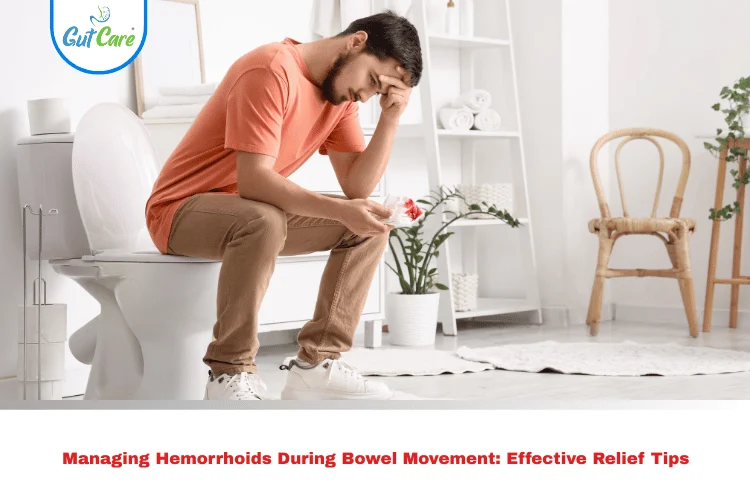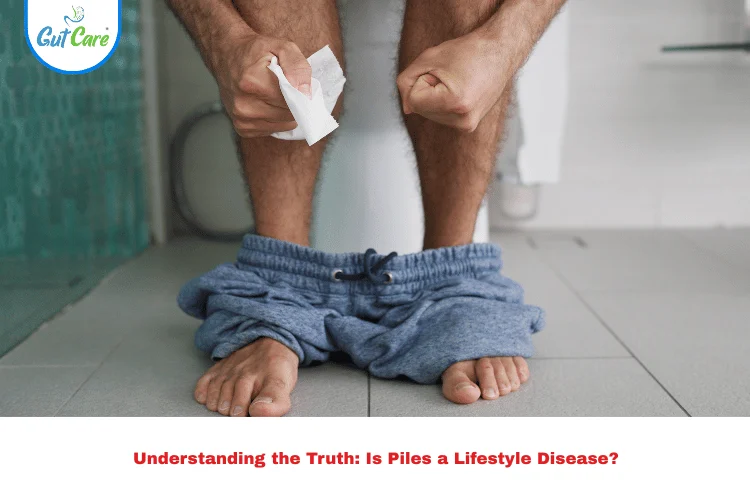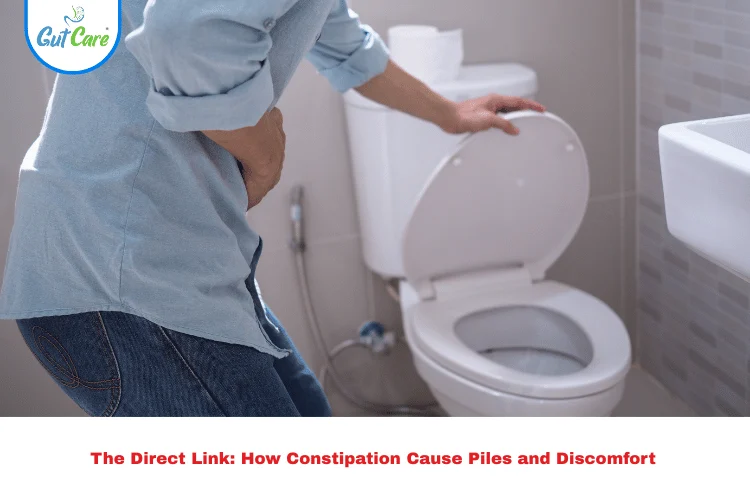Introduction
Piles diet is crucial for addressing the swollen veins in the lower part of the rectum and anus that can cause significant discomfort. Symptoms often include pain, itching, bleeding during bowel movements, and swelling around the anus. Managing these symptoms can be challenging, but one key approach is through the piles diet.
A well-balanced piles diet can help prevent constipation, reduce strain during bowel movements, and soothe inflammation. By making thoughtful dietary choices, you can alleviate piles symptoms and support overall digestive health. In this blog, we’ll discuss how specific dietary changes within the piles diet can provide relief and improve your quality of life.
Table of Contents
Key Dietary Changes for Relief

Increase Fiber Intake
Benefits of Fiber: A well-planned piles diet includes fiber, which helps prevent constipation by adding bulk to the stool and making bowel movements smoother and easier. This reduces the need for straining, which can aggravate piles.
High-Fiber Foods to Include: In your piles diet, incorporate foods that are rich in fiber, such as:
- Fruits: Apples, pears, berries, and oranges.
- Vegetables: Carrots, spinach, broccoli, and sweet potatoes.
- Whole Grains: Brown rice, whole wheat bread, oatmeal, and quinoa.
- Legumes: Beans, lentils, and chickpeas.
Tips for Increasing Fiber: Increase your fiber intake gradually to avoid bloating and gas. Drink plenty of water to help fiber work effectively in your digestive system and support your piles diet.
Stay Hydrated
Importance of Water: Staying well-hydrated is an essential part of a piles diet as it helps keep the stool soft and easier to pass, reducing the risk of constipation and strain.
Recommended Daily Intake: Aim to drink at least 8 glasses (about 2 liters) of water each day. Individual hydration needs can differ depending on factors such as activity level and climate.
Hydrating Foods: Incorporate foods with high water content into your piles diet, including:
- Cucumbers: Crisp and refreshing, great for hydration.
- Melons: Watermelon, cantaloupe, and honeydew are not only hydrating but also low in calories.
- Soups: Broth-based soups and clear liquids help maintain hydration.
Incorporate Healthy Fats
Role of Healthy Fats: Healthy fats can help maintain digestive health and support overall well-being. They can also help keep you satisfied and prevent overeating, which can contribute to digestive issues in your piles diet.
Sources of Healthy Fats: Include:
- Avocados: Rich in monounsaturated fats and fiber.
- Nuts: Almonds, walnuts, and pistachios provide healthy fats and fiber.
- Seeds: Chia seeds, flaxseeds, and pumpkin seeds are excellent sources of omega-3 fatty acids.
- Olive Oil: A good option for cooking and dressings.
Avoid Processed Foods
Impact on Digestion: Processed foods can be low in fiber and high in unhealthy fats and sugars, which can worsen constipation and make piles symptoms more severe. Avoiding processed foods is an important aspect of a successful piles diet.
Examples of Processed Foods to Limit: Avoid or limit:
- Fast Food: Often high in fat, salt, and refined carbs.
- Sugary Snacks: Such as candy, pastries, and soda.
- Refined Grains: White bread, white rice, and other processed grains that lack fiber
Foods to Avoid
Low-Fiber Foods
- Examples: Foods such as white bread, white rice, pastries, and processed meats.
- Reasons to Avoid: Low-fiber foods lack the bulk needed to keep stools soft and regular. Without enough fiber, stools can become hard and difficult to pass, leading to straining during bowel movements, which can aggravate piles. Consuming these foods can also contribute to constipation, making piles symptoms worse.
Spicy Foods
- Examples: Hot peppers, spicy sauces, and heavily seasoned dishes.
- How They Irritate: Spicy foods can irritate the lining of the digestive tract, leading to discomfort and inflammation. For people with piles, this irritation can exacerbate symptoms such as itching and pain. Additionally, spicy foods can sometimes cause diarrhea, which can further irritate and inflame piles.
Caffeine and Alcohol
- Caffeine: Present in coffee, tea, and certain sodas.
- Alcohol: Includes beer, wine, and spirits.
- Effects on Bowel Movements and Hydration: Both caffeine and alcohol can have dehydrating effects on the body, which can lead to harder stools and increased constipation. They can also irritate the digestive system and disrupt normal bowel function, potentially worsening piles symptoms. Additionally, excessive consumption of these substances can lead to more frequent bowel movements, which can further irritate piles.
Meal Planning Tips
Sample Meal Ideas
High in Fiber:
- Breakfast:
- Oatmeal with Berries: Cooked oatmeal topped with fresh or frozen berries and a sprinkle of chia seeds or flaxseeds.
- Whole Grain Toast with Avocado: Whole grain toast spread with mashed avocado, and a side of sliced tomatoes or a small fruit.
- Lunch:
- Quinoa Salad: Quinoa mixed with chopped vegetables (cucumbers, bell peppers, cherry tomatoes), black beans, and a light vinaigrette.
- Vegetable Soup: A broth-based soup loaded with fiber-rich vegetables like carrots, celery, spinach, and peas.
- Dinner:
- Grilled Chicken with Steamed Vegetables: Skinless chicken breast grilled and served with steamed broccoli and a baked sweet potato.
- Lentil Stew: A hearty stew made with lentils, diced tomatoes, carrots, onions, and herbs.
- Snacks:
- Fresh Fruit: Apple slices, a handful of berries, or a pear.
- Nuts and Seeds: A small portion of almonds, walnuts, or pumpkin seeds.
High in Hydration:
- Breakfast:
- Smoothie: Blend spinach, banana, and a small amount of yogurt with water or a splash of almond milk.
- Lunch:
- Cucumber and Melon Salad: Salad with cucumbers, melon cubes, and a sprinkle of mint.
- Dinner:
- Broth-Based Soup: A clear soup with lots of vegetables to increase fluid intake.
- Snacks:
- Water-Rich Fruits: Watermelon or cantaloupe slices.
How to Balance Meals
- Include a Variety of Food Groups: Ensure each meal includes a mix of fiber-rich vegetables, whole grains, lean proteins, and healthy fats. This helps provide a wide range of nutrients and supports overall digestive health.
- Portion Control:
- Guideline: Use smaller plates and bowls to help manage portion sizes and prevent overeating.
- Tips: Aim for balanced portions at each meal: fill half your plate with vegetables, a quarter with lean protein, and a quarter with whole grains.
- Nutrient-Rich Choices:
- Fiber: Focus on foods high in fiber, like whole grains, fruits, and vegetables, to support healthy digestion and prevent constipation.
- Healthy Fats: Include sources like avocados, nuts, and seeds to help maintain digestive health without causing discomfort.
Importance of Regular Meal Times
- Consistent Eating Schedule:
- Benefits: Eating meals at regular intervals helps maintain a consistent digestive rhythm and prevents irregular bowel movements.
- Routine: Aim for three balanced meals and one or two snacks each day.
- Avoid Skipping Meals:
- Impact: Skipping meals can disrupt your digestive system, potentially leading to constipation and worsening piles symptoms.
- Strategy: Ensure you eat regularly to support digestive health and maintain energy levels.
Lifestyle Tips Complementing Dietary Changes
Importance of Regular Exercise
- Benefits: Regular physical activity helps keep the digestive system functioning smoothly. Exercise promotes regular bowel movements, reduces constipation, and helps maintain a healthy weight, which can reduce the strain on the rectal area.
- Types of Exercise:
- Walking: A daily walk of 30 minutes can improve bowel function.
- Swimming: Provides a full-body workout that is gentle on the joints and can enhance overall circulation.
- Yoga: Certain yoga poses can help alleviate constipation and support digestive health.
- Recommendations: Aim for at least 150 minutes of moderate aerobic activity or 75 minutes of vigorous activity per week, along with muscle-strengthening exercises on two or more days a week.
Proper Bowel Habits and Avoiding Prolonged Sitting
- Proper Bowel Habits:
- Respond Promptly: Go to the bathroom as soon as you feel the urge to prevent constipation and reduce straining.
- Avoid Straining: Use proper posture on the toilet—feet flat on the floor and leaning slightly forward. Consider a footstool to elevate your feet if needed.
- Don’t Hold It: Avoid delaying bowel movements, as this can lead to harder stools and increased straining.
- Avoiding Prolonged Sitting:
- Take Breaks: If you have a desk job or sit for long periods, take breaks every 30 to 60 minutes to stand up, stretch, or walk around.
- Use a Cushion: If sitting for extended periods is necessary, consider using a cushion or a specially designed seat pad to reduce pressure on the rectal area.
Stress Management and Its Impact on Digestion
- Impact of Stress: Stress can affect digestive health by disrupting normal bowel function, leading to issues like constipation or diarrhea. It can also contribute to tension and discomfort in the abdominal area.
- Stress Management Techniques:
- Relaxation Practices: Engage in activities like deep breathing exercises, meditation, or progressive muscle relaxation to reduce stress.
- Regular Exercise: Physical activity not only benefits your overall health but also helps in managing stress levels.
- Healthy Sleep: Ensure you get adequate, quality sleep to support overall well-being and reduce stress.
- Balanced Lifestyle: Incorporate stress-reducing activities into your daily routine to support both mental and digestive health.
When to Seek Medical Advice
Signs That Dietary Changes Alone May Not Be Sufficient
- Persistent Symptoms: If you continue to experience significant pain, bleeding, or itching despite making dietary changes, it may indicate that the problem is more severe and requires medical attention.
- Severe Bleeding: If you notice heavy or frequent bleeding during bowel movements, it could be a sign of a more serious condition and should be evaluated by a healthcare provider.
- Prolapsed Hemorrhoids: When hemorrhoids protrude outside the anus and do not return to their original position, they may need medical treatment. Symptoms may include severe pain and discomfort.
- Worsening Symptoms: If symptoms such as pain, swelling, or discomfort worsen over time despite dietary and lifestyle adjustments, it’s important to consult a healthcare professional.
Importance of Consulting with a Healthcare Provider for Severe Cases
- Diagnosis: A healthcare provider can perform a thorough examination to determine the severity of the condition and differentiate piles from other potential issues.
- Treatment Options: For severe cases, treatments beyond dietary changes may be necessary. These could include topical medications, procedures like rubber band ligation, or surgical options depending on the severity and type of hemorrhoids.
- Ongoing Management: A healthcare provider can offer personalized advice and create a comprehensive management plan, including medications, lifestyle changes, and follow-up care to address and manage symptoms effectively.
- Preventing Complications: Consulting with a healthcare provider ensures that any potential complications, such as infections or more serious conditions, are identified and treated promptly.
Frequently Asked Questions
What foods should I include in a piles diet?
High-fiber foods like fruits, vegetables, whole grains, and legumes are essential. Hydrating foods like cucumbers and melons are also beneficial.
How does fiber help with piles?
Fiber adds bulk to the stool, making bowel movements smoother and easier, which helps prevent constipation and reduces strain.
What should I avoid in a piles diet?
Limit or avoid low-fiber foods, spicy foods, caffeine, and alcohol, as they can exacerbate piles symptoms and lead to constipation.
How much water should I drink for piles relief?
Aim to drink at least 8 glasses (about 2 liters) of water daily to keep the stool soft and reduce the risk of constipation.
Can a piles diet alone cure hemorrhoids?
While a piles diet can significantly relieve symptoms and improve quality of life, it is not a cure. Persistent or severe cases may require medical treatment.
Are there any specific exercises that help with piles?
Regular exercise, such as walking, swimming, and yoga, can improve bowel function and reduce symptoms. Reduce prolonged sitting and include regular movement in your daily routine.
Conclusion
In summary, dietary changes play a crucial role in relieving piles by preventing constipation and reducing strain during bowel movements. A balanced piles diet rich in fiber, staying hydrated, and avoiding irritating foods can significantly improve symptoms and support overall digestive health.
We encourage you to integrate these dietary and lifestyle changes into your piles diet for better well-being. If you have any questions or would like to share your experiences, please feel free to leave a comment.
For further support, visit Gutcare Hospital in Bangalore, where you can find more resources and personalized care options.




